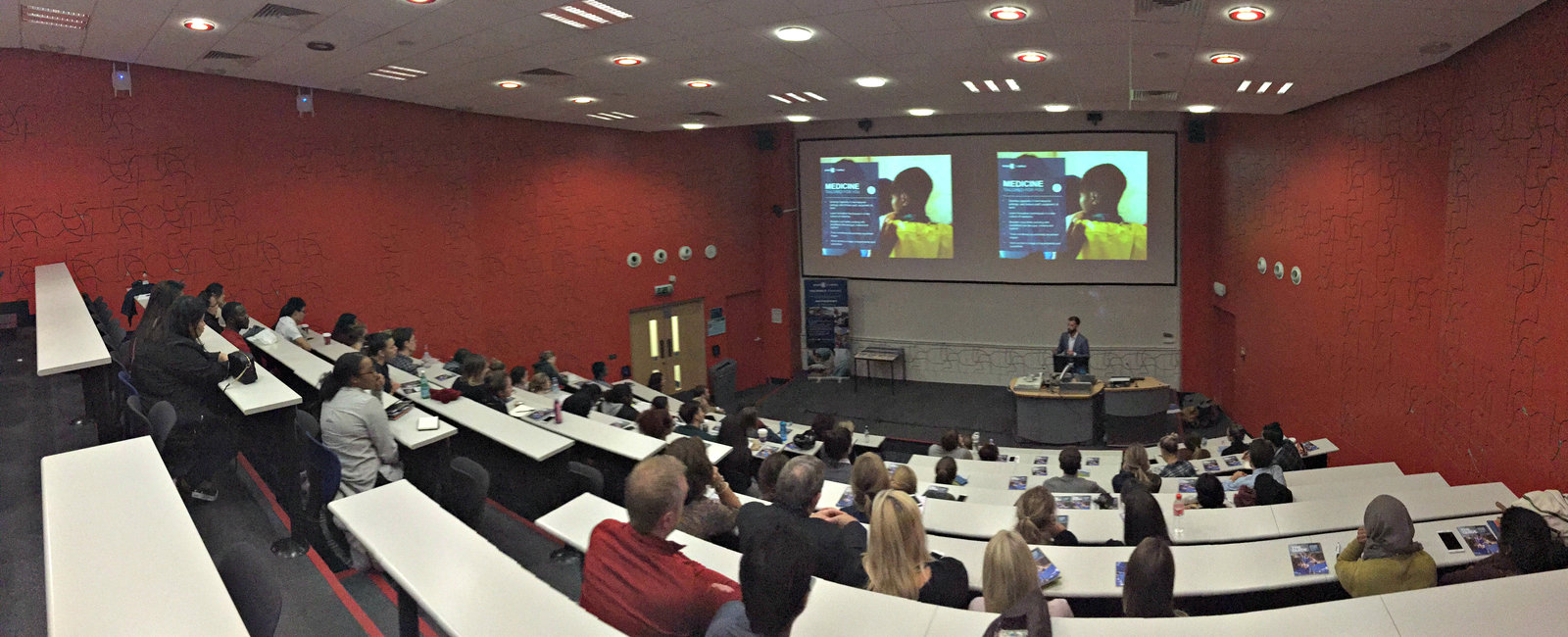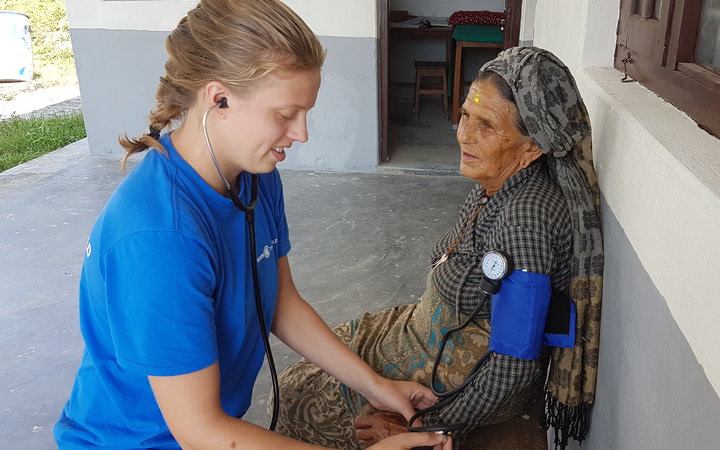Picture this:
You wake up one morning with a headache.
You notice that your muscles are aching too, and your neck is a bit stiff.
But you're not going to let that stop you.
You need to get yourself out of bed — you’ve got a lecture on meningitis that you can't miss.

You sit there in your seat, listening to the lecture. Typical meningitis risk factors, symptoms…
The lecture covers some case studies, and you take some notes. You're feeling a little nauseous, so they’re not as comprehensive as usual. You can always listen to the recorded version of the lecture later if you miss anything.
And your headache really isn’t shifting. You took a couple of paracetamol earlier, but they haven’t done much.
After the lecture, you head home to try to sleep it off.

It’s the next day before you know it. You start reviewing yesterday's notes, but they’re not great. You pull up the recording of yesterday’s lecture.
The headache is still bothering you and you've got a temperature now too.
But this degree isn’t going to earn itself…

You press play and listen to the lecture. You start rewriting your notes on meningitis risk factors, symptoms…
Headaches, nausea, stiff neck, high temperature…
Wait a minute... It couldn’t be, could it?
And that’s how it starts…

That niggling feeling.
You dismiss it at first. But more and more of the symptoms seem to manifest.
Before you know it, you’re worried you've got meningitis when there's probably a simpler diagnosis.
This phenomenon has a name: MSS — Medical Student Syndrome.
To properly define it, Medical Student Syndrome is…
...a medical student’s preoccupying fear of having a serious illness (particularly one they are studying) despite appropriate medical evaluations and reassurances that their health is fine.
You might be familiar with it by other names —
- Medical Students’ Disease
- Medical Student Disorder
- Medical School Syndrome
- Third Year Syndrome
- Second Year Syndrome
- Intern’s Syndrome
Why is this happening?

- Information overload is a real risk -
A medical degree is just about as intense as a degree can be. You’re taking in an astonishing amount of information, learning the symptoms of one condition or another from morning until night.
And as you study symptoms, it’s only normal that you’d think about them in relation to yourself.
Some of this information is bound to make its way into your subconscious.
But because you’re still learning, there’s a chance you might think a suite of symptoms are signaling something serious when they’re not.
Not everyone experiences medical student syndrome. But it affects enough medical students that it has a name.
But here’s the thing —
Studies have shown that there are no meaningful differences between medical students and the general student population when it comes to presentation.
So why all the attention on medical students?

One simple yet elegant hypothesis stands out from the others. Here’s the idea —
Medical students have had access to (and reason to read) medical literature since studying medicine was a thing.
The textbooks, the papers — all of it.
The average person has not, historically, had easy access to (or reason to read) the medical literature. That’s what doctors have been there for.
But now, thanks to the internet, what was once the exclusive domain of medical students and doctors is now accessible to everyone with a smartphone.
Cyberchondria

Today, anyone with Google can look up symptoms and terrify themselves with an incorrect diagnosis. And it even has a name — cyberchondria.
It makes sense that this used to be a problem that only bothered medical students, but is now something that affects everyone.
On one hand this is terrible news — you’ll have a job persuading your future patients that no, their leg probably isn’t going to fall off, despite what they read on the internet.
On the other, it’s great news — medical students are no longer alone in mistaken self-diagnosis.
Better safe than sorry
When it comes down to it, if you’re worried about how you feel, you might as well go and see your doctor. Even qualified doctors with years of experience do this.
Does it matter if your self-diagnosis is way off the mark? Of course it doesn’t.
Whether you call it medical student syndrome, cyberchondria, or hypochondriasis, the truth is simple — it’s better to be safe than sorry.

Next Up:
Overseas Medical Internships
Learn how you can get eye-opening medical experience while travelling Africa or Asia.
Learn how you can get eye-opening medical experience while travelling Africa or Asia.







